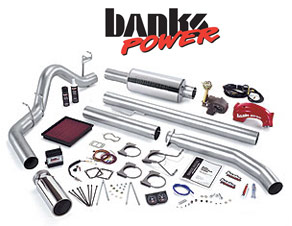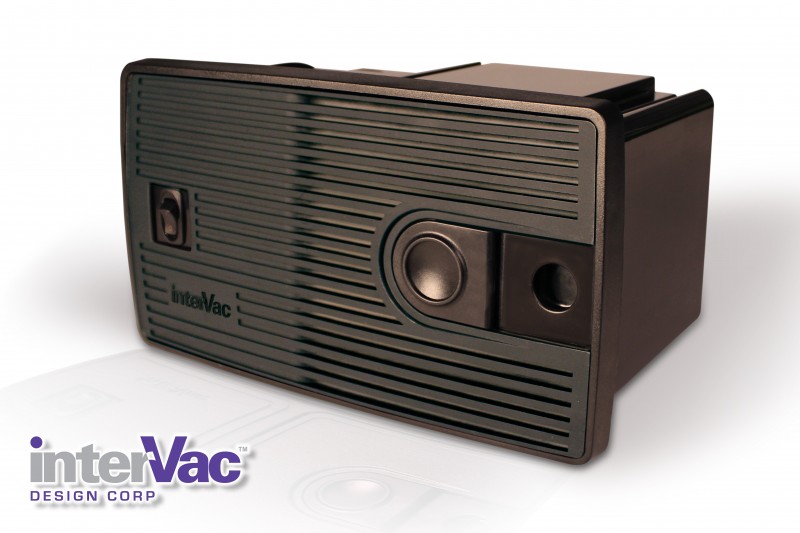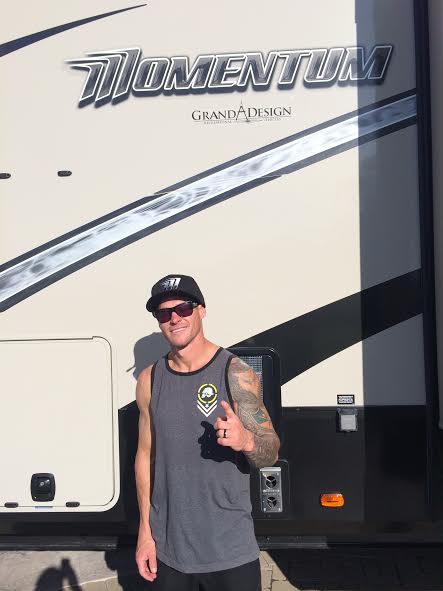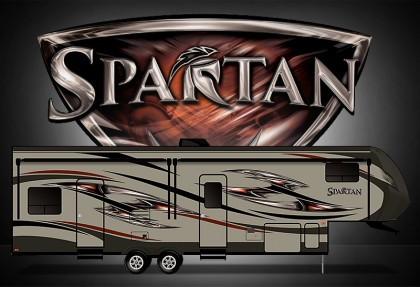This is a letter we received from Gale Banks, the President and founder of Banks Engineering… some of the best Diesel performance parts around. We feel this is a very important subject, as it has not only affected the after-market industry, but the OEMs as well. Here’s what Gale has to say:
March 22, 2010
Dear Members of the Media and Fellow Gearheads,
Functioning as a cutting edge automotive engineering company, in the state of California, since 1958, we at Banks have long understood our obligation to design and sell emissions-legal products. Much like prey accepting the reality of the predator, we realize that there’s much to be said for the old adage, “if you can’t beat ’em, join ’em.” Let’s face it… emissions standards won’t ever go away. They’ll simply evolve.
In 1976, Hugh MacInnes of TRW and I worked with California Air Resources Board (CARB) to establish a way for aftermarket products to be deemed smog legal under California code. This was driven by a contract I had in place with Pontiac Motor Division, to design and supply a dealer installed turbo system for the Pontiac Sunbird 4 cylinder engine.
Finally, thru our efforts, and later the efforts of the Specialty Equipment Market Association (SEMA), the Executive Order (EO) process was created. The EO testing process allowed Banks and others to sell “legal” products in California and to comply with the EPA equivalent “Memo 1A” federal standard. That’s good, but it took so many years that the Pontiac guys cancelled the program. That was my first real experience with the amount of time a large bureaucracy takes to get something done.
Fortunately, Pontiac came back with their new Firebird in ’82 and asked us to build one to attempt 250 MPH at the salt (Bonneville). Two turbos off the Offenhauser Indy program, on top of one of our marine big block Chevys, took us to a best mile of 277 MPH and a “World’s Fastest Passenger Car” record that we held for over a decade. We built 72 street versions of the car and shipped them all over the world. At 700 BHP, these Banks Twin Turbo GT’s were the first street legal cars to be tested at over 200 MPH on the street (making the cover of Car & Driver at 204 MPH, June ’84). And, they were the first, world class American tuner cars.
Banks has always been known for performance and performance includes fuel economy and emissions. Over the past 30 years we have acquired 80 EO’s for Banks products. We have the most EO’s for diesel engine up-fit products in our industry.
Now the problem; back in about 2000-2001, after more than 15 years of obtaining EO’s for our diesel products, CARB changed their mind on the aftermarket test procedure required for an EO to be issued. Eight years later, we are still working with CARB on a new and workable replacement test covering all vehicle makes and years. In a recent letter to the governor of California I laid out my dismay. The following contains my letter’s content, and also inserted in this version, is some verbal dialog I have had with his staff.
——————————————————————————–
March 09, 2010
The Honorable Arnold Schwarzenegger
300 S. Spring Street
Suite 16701
Los Angeles, CA 90013
Dear Governor Schwarzenegger,
The State of California is asking that our products pass a test to be legal for sale. My products are ready for the test but; nobody with the State can tell me what the test is.
My name is Gale Banks; I own the automotive design and manufacturing company Gale Banks Engineering, which has been in business 51 years and employs 145 people. Gale Banks Engineering’s products work in a variety of consumer, military, marine and commercial applications to improve diesel engine fuel economy, power, durability and safety. In today’s parlance, we’ve been doing “clean diesel” long before that catch-phrase was ever uttered.
I like to think Gale Banks Engineering is a good example of the kind of company people talk about when they speak of businesses that helped make California the premier state for innovation, opportunity and economic success.
Now, CARB (California Air Resources Board), thru BAR (the Bureau of Automotive Repair) ‘Diesel Smog Check Program’ seeks to punish our customers, and the customers of other businesses like us, for buying our products.
As of January 1st of this year and due to AB 1488, the new “Diesel Smog Check” program has begun. To pass the diesel smog inspection mandated by AB 1488, a customer’s vehicle equipped with certain Banks products, or the products of others, must have a CARB issued EO (executive order) sticker. Unfortunately, we can’t supply the CARB EO sticker, that permission comes when our products pass the CARB EO test.
But, there is currently no applicable and comprehensive test for the aftermarket. CARB decided to change the test our products must pass, eight years ago. The problem is, they have not developed a new EO test for aftermarket to replace the former one. As a result, it has been impossible for products sold in the “time gap,” between then and now, to be tested and receive an EO. And, know this, we first suggested to CARB a new test that could be done by the aftermarket in 2002. We ran that test on a Dodge Cummins and submitted the results. CARB wanted something different so starting in 2002 Banks, and then SEMA (the Specialty Equipment Marketing Association) starting around 2005, have been trying to move them to finalize the new test.
We cannot pass a test that does not exist, so there is no way we can prove that these “gap products” comply with emissions regulations. And, there is consequently no way that CARB can deem them illegal. The “no test problem” cuts both ways. In 2002 they put us in a situation with two choices. Go out of business or wait for CARB to come up with a test. Which would you choose? We decided to continue to work with CARB and stay in business.
My company has a good reputation with CARB. We continue to manufacture products which are designed to comply with CARB emissions standards. We now have over 80 EO’s covering our products. Our customers continue to buy them in good faith. Gale Banks Engineering is actively working directly with CARB, and we hope to have a clear path forward soon, but we anticipate that it may take up to a year to complete the EO process for all the products affected by this situation. We currently have 12 EO product test applications at CARB, the oldest being submitted 15 months ago.
Which brings me to you: I am asking your assistance in getting forbearance for my customers from BAR’s “diesel smog check”, while CARB decides what its product test will be, such that our products can comply. My customers should not be harmed due to the State’s lack of completion of their work. We have been lead to believe that a decision on the diesel EO test is just around the corner, and we have continued selling our products in good faith.
Gale Banks Engineering has provided BAR with a list of products for which CARB EO applications are in process. We ask that provision be made for these items to PASS this portion of the inspection during this interim period, while we work with CARB to secure the necessary EO’s.
This will not impact any of the remaining portions of the “diesel smog check” test. Vehicles that are equipped with Banks products would still be expected to pass all other components of the inspection, including OBD checks and the BAR snap (smoke) test.
For years, we, at Banks and SEMA have worked with CARB to help define the new test in good faith. But, at the end of the day, it is CARB’s responsibility as the regulator, not the industry’s as the regulated, to produce this test.
Governor Schwarzenegger, the case I can make for our industry is strong. Your attention and assistance in solving this unfair situation would be greatly appreciated.
Gale Banks
President
Gale Banks Engineering
Links:
California Air Resource Board Diesel site: http://www.arb.ca.gov/diesel/diesel.htm
Banks Engineering: http://www.bankspower.com/





1 comment
Thanks awesome post